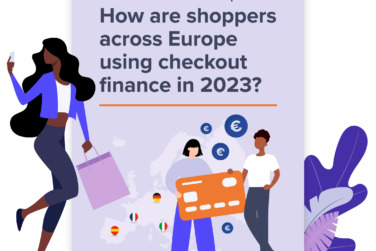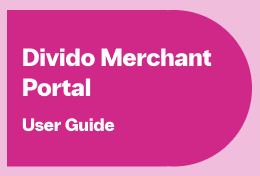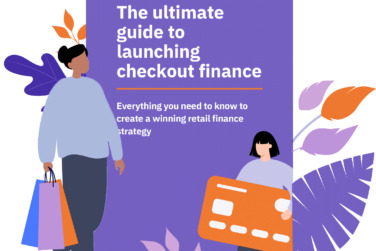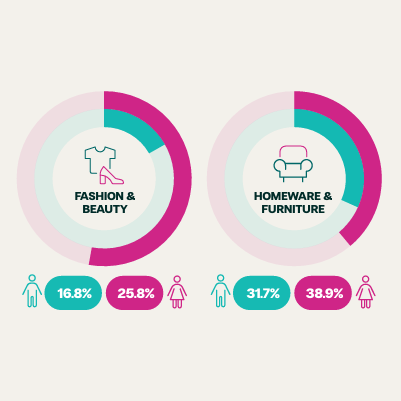Credit reporting in BNPL: the benefits to lenders, merchants and consumers

As the UK government prepares to implement regulation for Buy Now, Pay Later starting 2023, several providers have already taken steps to start reporting their consumers’ borrowing behaviour to credit reference agencies.
At the moment, there is no specific law obligating providers or lenders to do this. Also, the exact nature of the UK government’s impending legislation is yet to be determined – although many within the industry foresee that credit reporting will be a central tenet of new regulation. Some credit bureaus, such as Equifax, have already started to allow lenders the chance to opt-in to full credit reporting.
In the publication of their findings following a period of consultation after the Woolard Review, (section 3.34) the government stated that they “intend to work with CRAs (Credit Reference Agencies) and the wider industry to find an appropriate and workable solution to how BNPL may be reported on consumers’ credit files.” This is widely interpreted as meaning that Buy Now, Pay Later and Short-term Interest-free Credit loans will be more accurately reported to the three main credit agencies, Equifax, Experian and TransUnion.
For consumers, there are already two touchpoints in the Buy Now, Pay Later (BNPL) journey that can directly affect their credit scores.
Firstly, when a customer takes out a new loan, the BNPL provider will typically run at least a soft credit check to determine their viability and security, which leaves an imprint on the consumer’s credit file lasting at least two years. Should a consumer apply for too many loans, especially if they are rejected, the impact of these marks can be made all the more detrimental.
Secondly, if the consumer fails to repay their loan on time – in fact, if they miss even a single payment – their credit file will receive a negative annotation that can lower their overall credit score.
In other words, from the consumer’s perspective, Buy Now, Pay Later carries a significant risk to their credit file with no hope of a reward.
New regulation is intended to change this. With improved credit reporting, consumers will start to receive positive credit marks if they repay their loans on time. Buy Now, Pay Later will thus become a viable means by which consumers can build their credit scores.
Why is this good news for lenders?
Since BNPL lenders do not make a substantial profit on Short-term Interest-free Credit loans (with most charging between just 2–8% of the transaction value as a fee), one of the key value propositions of the Buy Now, Pay Later business model is that it provides an opportunity for brand awareness and cross-selling of other financial products.
Working mainly with Tier One lenders and large banks, we at Divido know this first-hand. Many of our clients tell us that two of the greatest benefits derived from providing BNPL loans are that they a) connect with a wider network of customers to whom they can cross-sell products such as mortgages, credit cards and personal loans, and b) improve their brand awareness generally, becoming more widely known as trustworthy financial institutions.
The advent of credit referencing therefore provides a significant boon to these lenders. With consumers able to benefit from improved credit scoring by financing products through interest-free credit, there is a strong possibility that more and more people will seek checkout finance as a means to complete their shopping. The ongoing absence of interest makes this not only an affordable, but a highly incentivisable form of credit.
This may, in turn, lead more consumers to become exposed to trusted BNPL lenders, whom they may later return to take out other forms of finance. And, with their improved credit ratings, there is all the more likelihood these customers will be successful in obtaining these loans. Lenders may thus see an increased number of approved loans offered to an ever-growing number of customers.
The tightening of credit reporting (especially when coupled with improved communications around lending, another facet of upcoming regulation) will have a secondary effect, in that we may start to see lower rates of missed payments.
Just this year, one-third of BNPL shoppers in the US said they have made a late payment, which likely has something to do with the fact two-fifths of consumers didn’t understand the dynamics around the loan agreement they were taking out. Poor communication may be to blame for this: consumers are likely to forget or underestimate the significance of the loan agreements they are making. With improved credit reporting will come greater transparency, which in turn may help to reduce rates of defaults, thus saving lenders from the unattractive prospect of chasing unpaid debt.
Lenders: time to make sure your brand is aligned with the new ethics of BNPL lending.
And how will retailers benefit?
When regulation takes effect consumers will have a greater incentive to choose Buy Now, Pay Later at the checkout.
At Divido, we believe the overall impact of regulation, when it arrives, will be to increase consumer confidence and stimulate the growth of retail overall. This will have a direct impact on retailers’ bottom lines. Already, Buy Now, Pay Later increases conversion rates by 2.1% on average, and some 90% of BNPL buyers become repeat customers. Buy Now, Pay Later is linked to larger basket sizes, higher average transaction values, lower rates of basket abandonment and more repeat business. Thus, as more customers start to use Buy Now, Pay Later not only as a way to cover the cost of large-ticket purchases, but also as a means to improve their credit ratings, retailers can look forward to a healthier profit stream.
The onus now is on retailers to start to communicate the benefits – and the pitfalls – of BNPL in order to reassure customers what they should expect, what they could stand to gain and where their obligations lie. The first step towards meaningful communication will be for these retailers to ensure they understand how their lending partners approach credit reporting. The retailer must then make this clear to the consumer at the point of sale.
This process should begin sooner rather than later. Many BNPL providers, especially Tier One lenders and large financial institutions, have already taken steps to ensure credit reporting is a central tenet of their business model. Merchants should seek to either partner with these lenders ahead of the upcoming advent of regulation, or else consider switching to a lending partner who can provide this incentive. After all, why wait till next year when the opportunity is there today?
Merchants: are your retail enterprises aligned with the new standards of ethical best practice?
Consumers will see the greatest positive impact
For customers themselves, new government regulations – particularly those regarding credit reporting – will have the most positive impact of all.
In the past, it has been notoriously difficult for ordinary consumers to build their credit ratings. These scores are vital when it comes to applying for credit in the form of mortgages, overdrafts, personal loans and credit cards. These methods each involve a high barrier of entry and incur additional costs, usually in the form of interest and fees, making them unattainable to many people. Paradoxically, a customer is often required to already have a good credit score before being accepted for these forms of finance in the first place.
With Buy Now, Pay Later, however, consumers will have a means to build their credit ratings in a way that fits their lifestyles. Since purchases made through BNPL incur no additional cost (so long as the loan is paid back on time during the interest-free period), customers will be able to safely and cheaply build their credit with Buy Now, Pay Later.
Of course, that is not to say building credit with Buy Now, Pay Later is without risk. As with all forms of credit, there is a chance that one’s credit score may go down, especially if the customer fails to meet their repayment obligations, if they apply for too many loans over a long period of time, or if they are rejected.
But, for customers who are responsible borrowers, BNPL represents an exciting opportunity to quickly and easily build one’s credit without having to resort to revolving credit forms such as credit cards. BNPL should and must remain chiefly a means of funding larger purchases, but in the instances where someone needs to purchase something that breaks their ordinary budget, BNPL will surely come to represent the ultimate means of payment.
We welcome the UK government’s proposed regulations
Greater consumer security, improved confidence and a positive impact on an individual’s credit rating – all of these factors will surely have a significant positive impact on the Buy Now, Pay Later sector.
At Divido, we are big advocates of the UK’s government approach to BNPL regulation. That’s why we’ve written extensively about what to expect, how to adapt, and how to make the most of the opportunity regulation presents.
The time to start the process of adapting to regulation is now. Whether you are a lender or a merchant, the sooner your business can start to implement an ethical standard of best practice with regards to Buy Now, Pay Later, the sooner you – and your customers – can start to benefit.
At Divido, we have a team of dedicated checkout finance experts who would be happy to offer advice to help you optimise your strategy and meet the new standards of regulation. Why not speak to us today to see how we can help?
Divido is the white label platform that connects lenders with merchants at the point of sale to create a truly seamless checkout finance experience.
Keen to know more?








